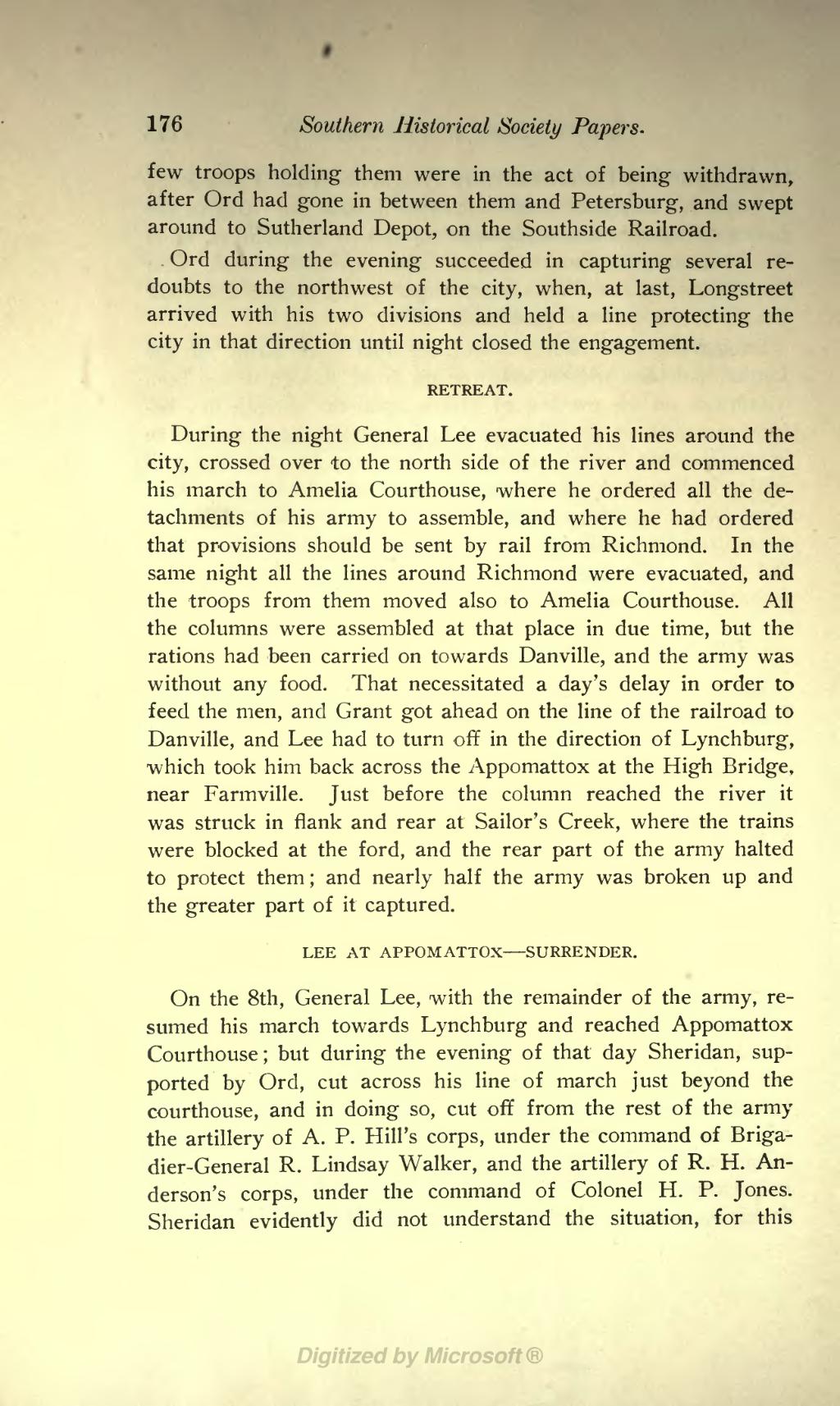few troops holding them were in the act of being withdrawn, after Ord had gone in between them and Petersburg, and swept around to Sutherland Depot, on the Southside Railroad.
Ord during the evening succeeded in capturing several redoubts to the northwest of the city, when, at last, Longstreet arrived with his two divisions and held a line protecting the city in that direction until night closed the engagement.
RETREAT.
During the night General Lee evacuated his lines around the city, crossed over to the north side of the river and commenced his march to Amelia Courthouse, where he ordered all the detachments of his army to assemble, and where he had ordered that provisions should be sent by rail from Richmond. In the same night all the lines around Richmond were evacuated, and the troops from them moved also to Amelia Courthouse. All the columns were assembled at that place in due time, but the rations had been carried on towards Danville, and the army was without any food. That necessitated a day's delay in order to feed the men, and Grant got ahead on the line of the railroad to Danville, and Lee had to turn off in the direction of Lynchburg, which took him back across the Appomattox at the High Bridge, near Farmville. Just before the column reached the river it was struck in flank and rear at Sailor's Creek, where the trains were blocked at the ford, and the rear part of the army halted to protect them; and nearly half the army was broken up and the greater part of it captured.
LEE AT APPOMATTOX—SURRENDER.
On the 8th, General Lee, with the remainder of the army, resumed his march towards Lynchburg and reached Appomattox Courthouse; but during the evening of that day Sheridan, supported by Ord, cut across his line of march just beyond the courthouse, and in doing so, cut off from the rest of the army the artillery of A. P. Hill's corps, under the command of Brigadier-General R. Lindsay Walker, and the artillery of R. H. Anderson's corps, under the command of Colonel H. P. Jones. Sheridan evidently did not understand the situation, for this
